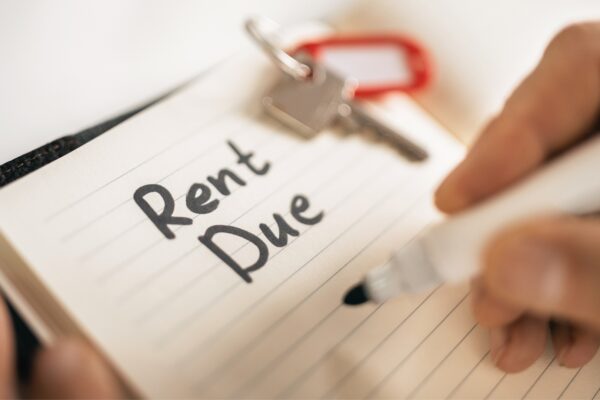Many tenants have seen a substantial or even total loss of income during the COVID-19 shutdown. Some landlords have responded to this by offering a ‘rent holiday’. I wrote in a previous post about how landlords and tenants could agree a temporary rent reduction without falling into any legal traps.
Where an agreement has already been reached, the landlord and tenant should have agreed whether the full rent will need to be paid later, and if so when those payments are to be made. If no such agreement was made but the tenant has not paid the full rent, the landlord should think about whether a repayment plan is a suitable way forward.
What is a rent repayment plan?
A “repayment plan” usually means an agreement for the debtor to gradually pay off what is owed, on the basis that the creditor will not take any legal action while the money is being paid. A repayment plan might also involve the creditor agreeing to accept less than the full amount that is owed in full and final settlement of the debt provided that certain payments are made.
These sorts of agreement are often good for both parties. Agreeing to a payment plan can make good business sense for landlords. A tenant who wants to stay in a property has every reason to pay their rent and arrears. Even if the landlord has to wait, they will often have a much better chance of being paid that way. By contrast, debt recovery through the courts is slow, time consuming and often fruitless. Clearly then, a negotiated solution can be attractive to a landlord, while the tenant gets to stay in the property while avoiding having a court judgment against them, which would affect their credit rating. Both parties benefit.
The legal status of rent repayment plans
The technical legal status of these agreements is not entirely straightforward. An agreement by the landlord to accept reduced or delayed payment will not usually amount to a variation of the contract between the parties, but it will normally have legal effect through the legal doctrine of ‘promissory estoppel’. This arises, according to the definition given by Lord Denning in 1946, when “a promise was made which was intended to create legal relations and which, to the knowledge of the person making the promise, was going to be acted on by the person to whom it was made and which was in fact so acted on.”
In practice this means that if a repayment plan has been agreed and is put into effect, it is likely to be legally binding on the parties, but there are important exceptions: if one party uses duress to compel the other to agree to accept less than they are entitled to, that agreement is not likely to be binding. And if the landlord merely tolerated late or reduced payment this will not, without more, be sufficient to create a legally binding ‘estoppel’ to prevent the full rent being demanded later. Where there is a dispute about the legal effect of a repayment plan the parties should take legal advice.
What terms should be in a repayment plan?
If a tenant is making an offer to pay the arrears it is a good idea to record in writing the total amount owed, and the amount the tenant will be paying in addition to the rent and when that is due, and any agreement about interest. Note that the Tenant Fees Act 2019 caps the interest that a landlord may claim on unpaid rent at 3% above the Bank of England base rate, and clauses in tenancy agreements which breach that rule are no longer enforceable.
The tenant may want the landlord to agree in writing that they will not evict the tenant, start a claim for debt at court, or attempt to bankrupt the tenant. Agreeing to something that broad would be unwise. The landlord will probably want to specify that if the tenant does not keep to the agreement the total amount of arrears will be immediately due for payment, so that the landlord can enforce the entire debt straight away – otherwise the landlord might receive one payment and then be faced with the argument that the rest of the arrears are not owed yet.
Landlords should also consider very carefully whether they are prepared to agree not to seek possession of the property for reasons other than rent arrears. This could cause them real difficulties if antisocial behaviour became an issue, or the landlord unexpectedly needed to sell the property.
In general it should be sufficient for the landlord to agree not to attempt to recover the unpaid rent or to recover possession of the property based on rent arrears provided that the tenant makes all of the agreed payments on time.
How to write a rent repayment plan
Recording the full agreement in one formal document would be the ideal way to formalise a rent repayment plan, but provided there is clarity about what has been agreed an exchange of emails will usually be sufficient. If a large amount of money is involved it could be useful to draft a formal deed to record the agreement, but this would often be unnecessarily complicated. Landlords should remember that if they do wish to recover the unpaid rent through the courts they are obliged to first follow the Pre-action Protocol for Debt Claims. Part of the procedure set out in that protocol is “trying to reach agreement for the debt to be paid by instalments, based on the debtor’s income and expenditure”. The protocol also requires a “creditor” who does not agree to a debtor’s proposal for repayment of the debt to give the debtor reasons in writing. This means that discussing a repayment plan is not just good practice – it is an important necessary step which landlords should always take before starting a claim for money at court.
Robin is a senior associate solicitor at Anthony Gold. He specialises in residential landlord and tenant law, and the regulation of the private rented sector. To get further advice on how to create a temporary rent reduction agreement, you can call 020 7940 4000.





Start the discussion at community.openrent.co.uk